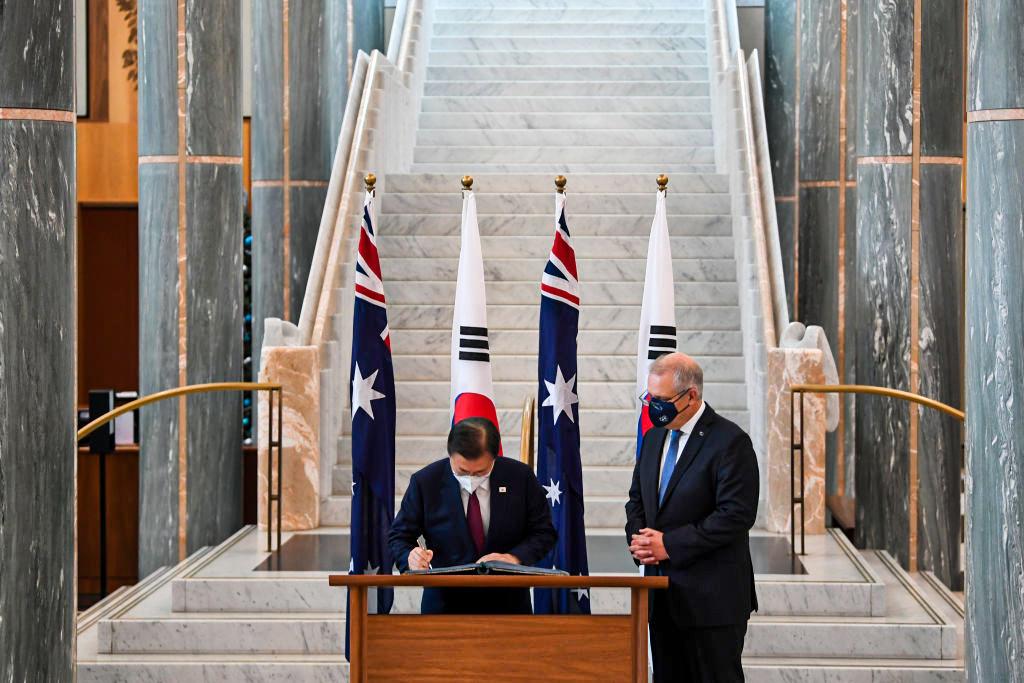Australia has signed-off on a historic $1 billion weapons contract with South Korea as Prime Minister Scott Morrison held formal talks with President Moon Jae-in in Canberra.
The first international leader to visit Australia since the country reopened its borders, Moon and first lady Kim Jung-sook arrived in the capital on the weekend before a formal welcome and meeting at Parliament House on Dec. 13.




